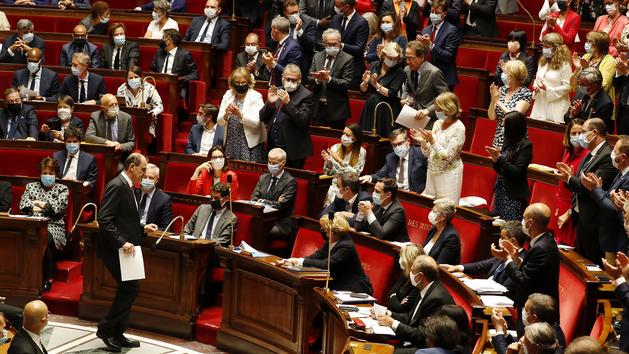Searches, individual control measures or even closure of places of worship: the National Assembly voted on Tuesday to extend the controversial measures of the 2017 anti-terrorism law until the end of July 2021, in the face of a still "significant" threat according to Gérald Darmanin . This prorogation bill, examined at first reading and which must now pass before the Senate, is presented pending a larger text, postponed due to the coronavirus crisis.
Read also: Criticized, the 2017 anti-terrorism law has proven its usefulness
It was largely validated by the deputies, with the exception of the Communists and Insoumis who spoke out against these “exceptional” provisions to which “our rule of law cannot become accustomed” , in the words of Stéphane Peu (PCF ). The right has supported the bill but would have liked, conversely, to toughen these measures and extend them further over time. Eric Ciotti (LR) has repeatedly pointed out the government's “reluctance” . The administrative measures to be extended were adopted at the start of the five-year term, and for three years, despite fierce protests from defenders of public freedoms.
They come from the law on internal security and the fight against terrorism (Silt) by Gérard Collomb. This law took over from the state of emergency, an exceptional regime under which France had been living since the attacks of November 13, 2015. These include administrative ex-searches, which since 2017 have become “home visits and seizures” , and house arrest, transformed into "individual measures of administrative control and surveillance" (Micas). The protection perimeters, in the event of an event exposed to a risk of acts of terrorism, as well as the closure of places of worship were also subject to a review clause before December 31, 2020.
A "modest" record for the right
Also on the program, the extension of the experimentation of the technique known as "algorithm" in terms of intelligence, contained in the so-called "intelligence" law of July 2015. This technique makes it possible to analyze communications exchanged within the network of an operator, to detect threats. The new Minister of the Interior has promised the presentation in the autumn of a new complete bill, already "ready" , which will take over these measures before July 2021. It will then be a question of adapting them to the evolution of the terrorist threat, which remains at a "very high level" , noted Gérald Darmanin. “Since 2017, ten attacks, mostly inspired by the Islamic State, have resulted in the death of 20 people on the national territory” and “32 attacks have also been foiled by the services”, he said. highlighted.
The bill, prepared by his predecessor Christophe Castaner, initially provided for an end to December 31, 2021, a deadline that the deputies reduced to July 31, 2021, on the initiative of the rapporteur Didier Paris (LREM). He stressed that this would allow Parliament to take up a full review earlier. Gérald Darmanin has come to terms with this “tighter schedule” , wanting to be “both the French security minister and the one who guarantees public freedoms”. According to the latest data, as of July 17, 302 Micas had been taken, of which 59 are still in force and 169 “visits” have been made since November 1, 2017. A total of 531 security perimeters have been established and seven places of worship were closed, reported the Minister, referring to "a reasoned and targeted use" of all these tools, "essential for the specialized services" of the State.
This record is "modest" in the eyes of the right: "we have weakened our degree of protection" compared to the period under a state of emergency, according to Eric Ciotti who "calls (his) wishes for a major law against terrorism which breaks with a form of naivety ”. Nicolas Meizonnet (RN) also denounced a lack of "firm political will" in the fight against terrorism. For its part, the left of the left tried in vain to empty the bill, and demanded more resources for justice and intelligence. "Do not play with our fundamental freedoms" , asked Mathilde Panot (LFI), for whom "the coronavirus has a good back".









